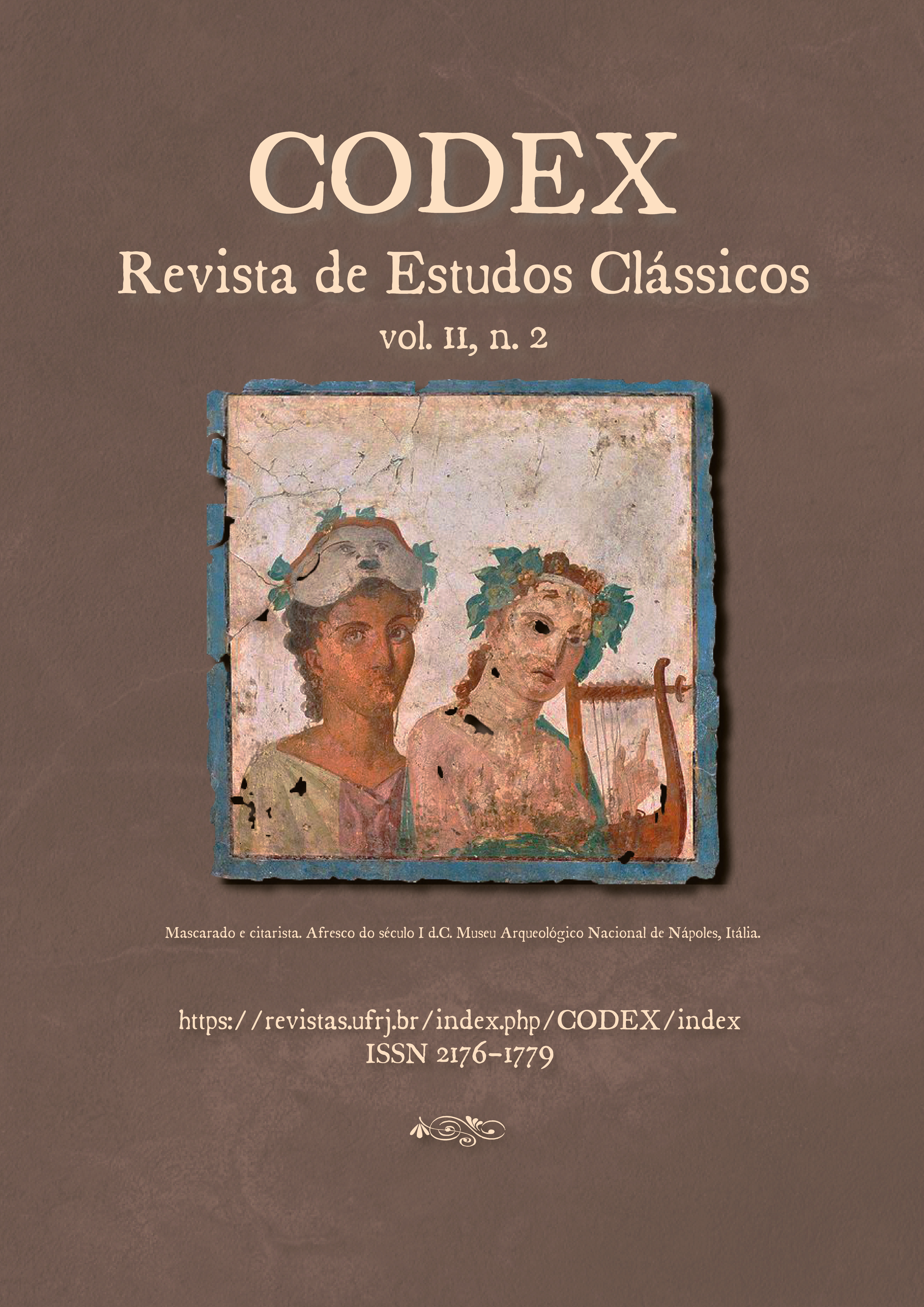Mujer, poder y comedia aristofánica
DOI:
https://doi.org/10.25187/codex.v11i2.62763Parole chiave:
mujeres, comedia aristofánica, Lisístrata, literatura hispano-caribeñaAbstract
Si en los últimos tiempos las luchas femeninas han propiciado nuevas miradas sobre la Lisístrata de Aristófanes como antecedente en la Antigüedad, a diferencia de lo acontecido con las heroínas trágicas, son muy pocas las obras inspiradas en las de comedia. Nos proponemos mostrar las especificidades de la relación mujer y poder en la comedia aristofánica como en su impronta en autores del Caribe hispánico.
Downloads
Riferimenti bibliografici
ARISTÓFANES. Comedias. Trad. de Luis Gil. Madrid: Gredos, 2000.
ARRIVI, Francisco. Club de solteros. San Juan: Editorial Tinglado Puertorriqueño, B. 1a edición, 1962.
DOMÍNGUEZ, Franklin. Lisístrata odia la política. Santo Domingo: Feria Nacional del Libro, 1891.
GENTILE, Brigidina (ed.). “Penelope”. L’altra Penelope. Salerno, Milano: Oedipus ed, 2008.
GONZÁLEZ FREYRE, Natividad. “Lisístrata (Las mujeres se rebelan)”. Verde Olivo. no. 28, 15 de julio, pp. 88-89, 1962.
MIRANDA, Elina. Dioniso en las Antillas. La Habana: Ed. UH, 2019.
PLUTARCO. “Pericles-Fabio Máximo”, Vidas paralelas. Trad. de Antonio Ranz. Buenos Aires: Espasa-Calpe Argentina s.a, 1948.
##submission.downloads##
Pubblicato
Come citare
Fascicolo
Sezione
Licenza
Copyright (c) 2024 Elina Miranda Cancela

Questo lavoro è fornito con la licenza Creative Commons Attribuzione - Non commerciale 4.0 Internazionale.
A Codex - Revista de Estudos Clássicos utiliza uma licença Creative Commons - Atribuição-NãoComercial 4.0 Internacional.
Os autores dos trabalhos aprovados autorizam a revista a, após a publicação, ceder seu conteúdo para reprodução em indexadores de conteúdo, bibliotecas virtuais e similares.
A revista se permite o uso dos trabalhos publicados para fins não comerciais, incluindo o direito de enviar o trabalho para bases de dados de acesso público.










